Tag Archives: new-england-fishery-management-council
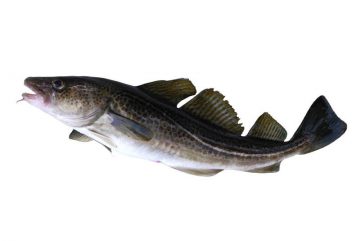
Cod fishery plummets to least valuable year since 1960s
Maine’s cod fishery, once one of the most lucrative in the Northeast, has declined to the point that it had its least valuable year in more than a half-century in 2018. The state’s industry harvesting the fish-and-chips staple goes back centuries, and it once brought millions of pounds of the fish to land year after year. But data from the state Department of Marine Resources indicate the state’s cod were worth just over $200,000 at the docks last year — less than the median price of a single-family home in Maine. >click to read<09:56
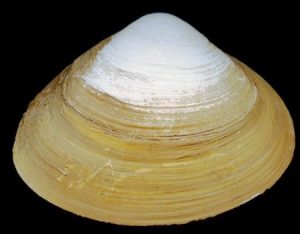
Our surf clam fishery is headed for disaster
When it comes to fishery management controversy never seems to be too far away. Last month you may have read about the dubious nature of a decision by the New England Fishery Management Council to close a large area of Nantucket Shoals to fishermen who harvest surf clams there, ostensibly to protect fish habitat. Questionable actions such as these undermine industry confidence in fishery regulators and serve only to alienate, and embitter, fishermen and the many others on the waterfront whose livelihoods are threatened by such draconian measures. >click to read<20:47
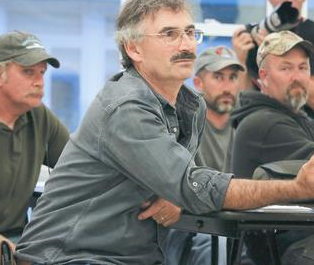
Walter Kumiega reflects on eight years in the House
Deer Isle carpenter Walter Kumiega represented District 134—Deer Isle, Stonington, Isle au Haut and eight other communities—for eight years in the state legislature before becoming ineligible for re-election under state term limits for legislators.,, With commercial fishing communities “still the most important economic driver in my district,” Kumiega immediately joined the Joint Standing Committee on Marine Resources, chairing it for his final three terms. Throughout his tenure, he worked to initiate changes in lobster licensing regulations and sponsored legislation creating the Maine Lobster Marketing Collaborative, funding for which was recently renewed for a second three-year span. >click to read<15:07
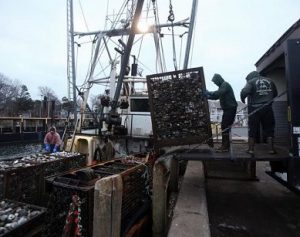
LETTER: Clam fishermen put forth proposal that protects the resource
Last week, the New England Fishery Management Council voted to kick Massachusetts surf clam fishermen off of 80 percent of our historic Nantucket Shoals fishing grounds. Our fishery in these treacherous local waters grosses $10 million per year to the dozen or so boats and their crews, and multiples more to the South Coast fishing economy. Our catch is hand-shucked for a higher value. New Bedford, Fall River, Gloucester, and Bristol, R.I. families stand to lose hundreds of jobs. While the council’s decision was based on habitat considerations, it rejected an option that would have allowed us to fish on about 80 percent of the available surf clam resource while allowing access to less than 20 percent of the overall habitat zone. >click to read<19:45

NOAA’s treatment of wind industry called into question after closure of clamming areas
Offshore wind development appeared on Tuesday’s agenda at a New England Fishery Management Council meeting, however, it wasn’t expected to pop up during discussion on closures affecting the clamming industry. Peter Hughes, a liaison for the Atlantic Council, couldn’t digest the fact that an offshore wind leasing area identified in a similar region extends upwards of 1,400 square miles, while the clamming industry, which sought less than 300 square miles off of Nantucket Shoals, couldn’t receive approval. >click to read<09:34
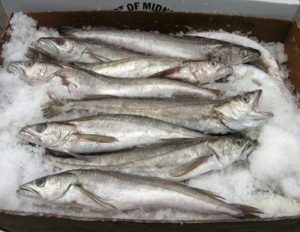
NEFMC votes against limiting access to whiting fishery
New England Fishery Management Council members have shown little collective enthusiasm for limiting access to the Northeast small-mesh whiting fishery and the great majority followed through on that sentiment Tuesday. Convening in Newport, Rhode Island, in the first of its three days of meetings, the council took final action on the measure known as Amendment 22 by voting 13-1 with one abstention to sustain the small-mesh fishery’s status quo as an open fishery. The vote defeated a proposal to establish requirements for limiting the access to the small-mesh multispecies fishery that has grown in popularity among local groundfishermen as other stocks have become less abundant or been subject to stricter management policies. >click to read<16:10
New England Fishery Management Council meeting in Newport, RI., December 4 thru 6 2018
The New England Fishery Management Council will be meeting at Hotel Viking, Newport, RI, December 4, 2018 –
December 6, 2018. To read the final agenda, >click here< Register for webinar >click here< to listen live. 08:16
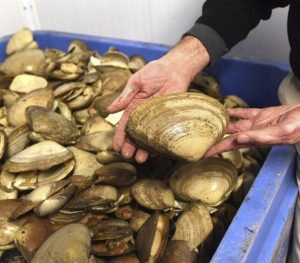
Fishermen backing surf clammers in fight over harvest area
Groundfish stakeholders are supporting the surf clam industry’s efforts to retain fishing rights in pockets of the Great South Channel of the Nantucket Shoals as long as the approved management policy does not prompt “mitigations or further habitat restrictions on the groundfish fishery.”,,, On Tuesday, the New England Fishery Management Council, meeting in Newport, Rhode Island, is expected to decide whether one of the more lucrative fishing grounds for the surf clam fishery — 10 to 20 miles east and southeast of Nantucket — will remain open to surf clamming or restricted or closed as part of a protectionist effort to designate the full area as an essential fish habitat that would be off limits to surf clamming dredging gear. >click to read<06:55

Clam controversy – There is much at stake, like a lot of jobs.
In June, at the Intershell dock on Commercial Street, owners Monte and Yibing Gao Rome launched their new 55-foot surf clam boat, F/V Bing Bing, amid the hoopla and happiness associated with a new Gloucester boat going into the water. But on Tuesday, Intershell and the other major surf clammers along the Northeast will find out if they still have a surf clam fishery to call home in the lucrative and historically rich Great South Channel of the Nantucket Shoals. The New England Fishery Management Council, in a trailing action to its Omnibus 2 Essential Fish Habitat Amendment, will decide if a large swath of the current surf clam fishery, 10 to 20 miles east and southeast of Nantucket, will remain open to surf clamming or possibly be closed as part of a protectionist move to designate the full area as an essential fish habitat. >click to read<22:45
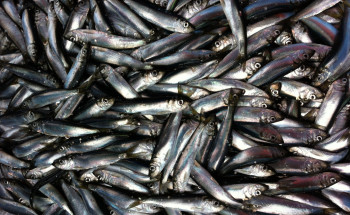
Drastic cut to herring quota puts Maine lobstermen over the bait barrel
The New England Fishery Management Council voted last month to set the 2019 herring quota at 3.2 million pounds – about 78 million pounds less than what the East Coast herring fleet is permitted to catch this year – to help the population recover from a record-low number of juvenile herring. To put the cut in context, that is about 2,000 tractor-trailer trucks of the industry’s favorite bait that won’t be showing up in New England lobster ports next year. >click to read<06:58
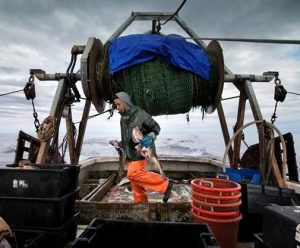
US fishermen lose quota in new fishing pact with Canada
American fishermen are losing thousands of pounds of valuable fishing quota under a new catch share agreement with Canada. Fishermen from the U.S. and Canada seek haddock, cod and flounder on Georges Bank, which is a critical fishing ground east of New England, The two countries craft a catch share agreement every year. Under the latest agreement, the U.S.’s eastern Georges Bank cod quota is falling by more than 25 per cent to about 415,000 pounds and the eastern Georges Bank haddock quota is falling by about 4 per cent to about 33 million pounds. The loss in quota will present a hardship for New England fishermen, who are already coping with low cod quotas and the collapse of the cod stock, said Terry Alexander,,, >click to read<16:40
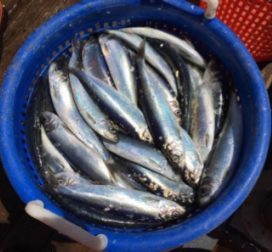
New England Fishery Management Council scale back Atlantic herring catch
The New England Fishery Management Council unanimously approved a new management approach that will dramatically cut the catch limits for herring over the next three years, but the regulatory board stopped short of temporarily shutting down the fishery, as one option on the table would have required. The new rules adopted by the council, which put in place a formula for setting annual catch limits, were applauded by some environmental advocates as recognition of the fish’s key role in the larger ocean ecosystem. But the decision was made over the objections of groups representing commercial fishing boats that catch herring and lobstermen who use the fish as bait. >click to read<08:02
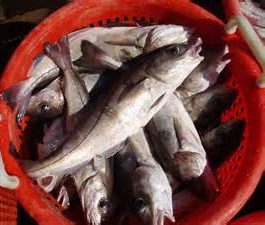
Fishermen facing cuts to Georges Bank stocks, Council considering catch limits for yellowtail, cod, haddock
The New England Fishery Management Council is expected to vote this week on the 2019 total allowable catch limits for three Georges Bank groundfish stocks the United States shares with Canada, with significant reductions expected for each stock. The council, set to meet Monday through Thursday in Plymouth, will discuss total allowable catch, or TAC, recommendations by both the science-based Transboundary Resource Assessment Committee and the management-based Transboundary Management Guidance Committee. The latter, however, is expected to hold more sway in developing the 2019 limits. The U.S. and Canada already have negotiated the catch limits within the TMGC recommendations for Georges Bank yellowtail flounder, Eastern Georges Bank haddock and Eastern Georges Bank cod. >click to read<21:42
New England Fishery Management Council meeting September 24-27, 2018 in Plymouth, MA.
The New England Fishery Management Council will be meeting at Hotel 1620, 180 Water Street, Plymouth Harbor, MA. September 24, 2018 – September 27, 2018. To read the final agenda, >click here< Register for webinar >click here< to listen live. 19:42

Atlantic herring quotas may be cut again
Later this month, fisheries regulators will decide whether to adopt a new set of regulations, known as Amendment 8, that could include restricting fishing areas for the herring and could, for the first time, account for the fish’s place in the larger ecosystem. The New England Fishery Management Council’s Atlantic herring committee will meet next week to vote on a recommendation to the full council, which meets the following week. Consideration of the new management system, and the restrictions it would bring, follows the announcement in August that next year’s quota for Atlantic herring had been cut by 55 percent from its original level. >click to read<16:06
NEFMC Seeks Input From Fishermen and Research Partners on RSA Programs; Take the Online Survey!
The New England Fishery Management Council is asking fishermen and their cooperative research partners who participate in the Atlantic Sea Scallop, Atlantic Herring, and/or Monkfish Research Set-Aside (RSA) Programs to take an online survey and provide feedback on the strengths and weaknesses of these programs and pass along any suggestions for improvement. Other stakeholders who have an interest or role in RSA programs also are encouraged to take the survey.,,, The survey, which contains roughly 40 questions, will be available online until mid-September 2018. >click to read<17:02
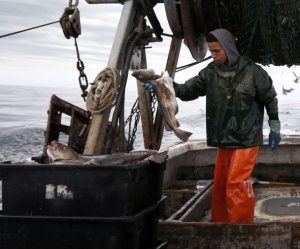
New England: Centuries-old cod fishery had worst year in history in 2017
One of the most historic fisheries in the country hit an all-time low last year as cod fishermen continued to struggle with choking quotas and low abundance of the fish. Maine’s cod fishery has existed since at least the early 17th century, and it was once one of the strongest in the country. The fishery peaked at more than 21 million pounds of cod, a fish often used with the fish and chips dish, in 1991.,,, One reason for the collapse is that federal quotas for cod are so low many fishermen are just avoiding them altogether, said Terry Alexander, a veteran fisherman out of Portland and Boston. Cod fishermen typically also seek other species, such as haddock and flounder, and they must stop fishing altogether once they reach quota for cod, per the rules. >click to read<11:15
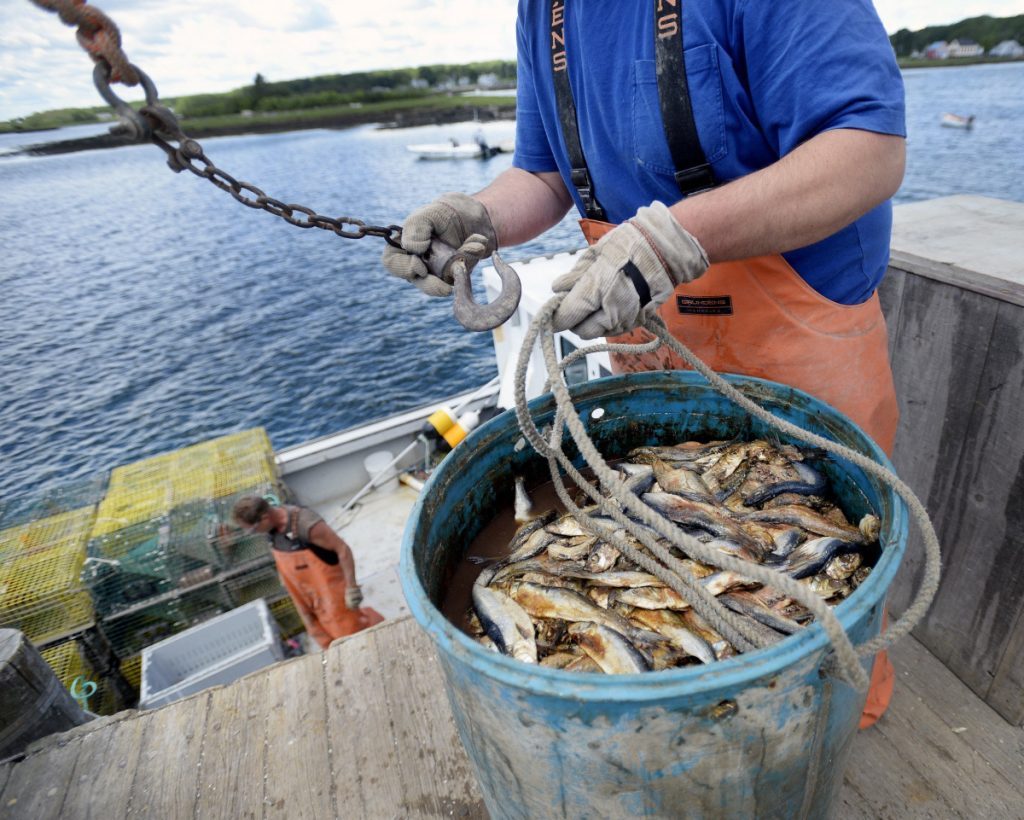
Maine: Pending bait shortage poses another threat to New England lobster industry
Regulators want to cap this year’s herring landings at last year’s levels, or 50,000 metric tons, and slash next year’s quota of the most popular lobster bait from 110,000 to 30,000 metric tons. They want to do this to offset record low numbers of newborn herring that are entering the fishery to replace those that are caught, eaten by other predators or die from natural causes. The 2019 quota could fall even lower if regulators adopt a separate proposal to leave more herring in the sea to feed the fish, birds and marine mammals that eat them, including Gulf of Maine species such as cunner, cod, seals, whales, puffins and terns. The New England Fishery Management Council could decide the issue as early as September. Eco-based Management. >click to read<10:51
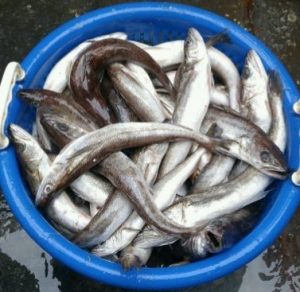
NEFMC – Whiting Amendment 22: Five Hearings to Consider Limited Access Program for Small-Mesh Multispecies
The New England Fishery Management Council has scheduled five public hearings on Draft Amendment 22 to the Northeast Multispecies Fishery Management Plan. This amendment proposes to establish a limited access program for five stocks of small-mesh species: northern silver hake, southern silver hake, and offshore hake –collectively referred to as “whiting” –as well as northern red hake and southern red hake. The amendment contains three components: (1) limited access qualification criteria; (2) silver and offshore hake possession limit alternatives; and (3) permit “characteristics and conditions” that could apply if limited access is adopted. Although the Council voted in December 2017 to send Amendment 22 out to public hearing with “no action” as its preferred alternative,public input is highly encouraged on all options. Public Hearing Schedule, Gloucester, Tinton Falls, NJ, Montauk, Warwick, New Bedford >click to read<17:08
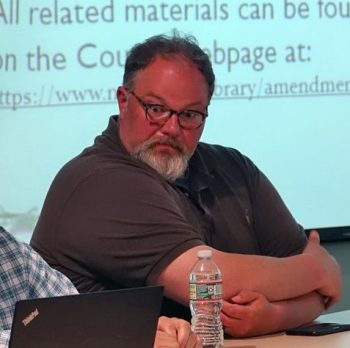
Fishermen Urge Regulators to Establish 50-Mile Buffer Zone for Herring Trawlers
Local fishermen and elected officials from across Cape Cod strongly urged fishery managers Tuesday to impose a strict 50 mile buffer zone for mid-water herring trawlers. At an overflow meeting in the Chatham Community Center, they said the vessels are wiping out the herring, negatively impacting the local fishing industry and related economies. The New England Fishery Management Council is considering changes in the rules that govern the trawlers and has been taking comments at various ports around New England. >click to read<11:05
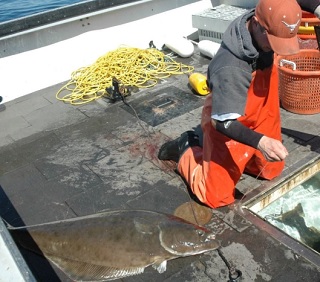
Halibut landings up, so Maine halibut landings to go down
Just as in the physical world, it’s a quirk of the regulatory world of fisheries management that when something goes up, something must go down, and it isn’t always the same thing. Last week, the Department of Marine Resources held a series of public hearings in Ellsworth, Machias and Augusta on a proposed regulation that would shorten the Maine halibut fishing season by 20 days, cut the number of allowable hooks for halibut fishing on each boat and ban possession of halibut by fishermen who have state-issued halibut tags who have been fishing outside the three-mile state waters limit. >click to read<10:55
New England Fishery Management Council meeting in Portland, ME June 12 -14, 2018
The New England Fishery Management Council will be meeting at Holiday Inn by the Bay, Portland, ME, To read the final agenda, >click here< Register for webinar >click here< to listen live. 08:13
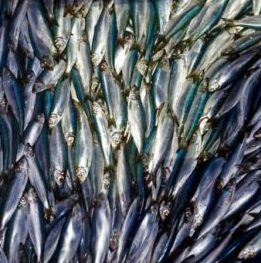
Mashpee Selectmen Push To Move Herring Trawlers Off The Coast
The New England Fishery Management Council, a federal entity, will host several public hearings to solicit comments on possible alternatives under consideration in an amendment to the Atlantic Herring Fishery Management Plan. More specifically, the council is seeking feedback from the public on which alternatives should be selected and why. One of those amendments includes forcing fishing vessels called midwater trawlers 12 miles off the Cape Cod shore.,,, But the operators of these midwater trawlers contest the proposed amendment,,, Mary Beth Tooley, a representative of O’Hara Corporation in Maine, says that about 80 percent of the Maine lobster fishery uses herring as bait. “That’s thousands of lobstermen that will be impacted,” >click to read<20:13
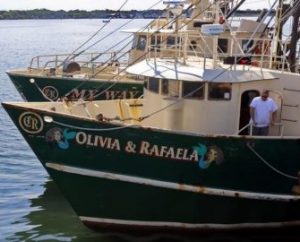
Despite sector shuffle, New Bedford fishermen will still be…
Whispers filled the convention room at the Hilton Wednesday as the dozens in attendance attempted to count the raised hands, which signified votes of the New England Fishery Management Council. The three attempts to accurately tally the votes only added to the drama of a discussion that involved a groundfishing ban that’s affected New Bedford since November. In the end, the vote didn’t provide a resolution for those fishermen out of work and the shoreside business affected by the ban. <click to read<18:27
New England Fishery Management Council meeting in Mystic, Ct. April 17 — 19, 2018
The New England Fishery Management Council will be meeting in Mystic, CT Hilton Hotel, 20 Coogan Boulevard, April 17 — 19, 2018. To read the final agenda, >click here< Register for webinar >click here< to listen live 11:09
New England Fishery Management Council to hear Sector IX’s post-Rafael plans
The New England Fishery Management Council will be updated on the groundfish crisis involving several New Bedford-based fishing sectors when it convenes for three days of meetings next week in Mystic, Connecticut. The groundfish presentation by staff from the Gloucester-based Greater Atlantic Regional Fisheries Office will be the centerpiece of the groundfish report on Wednesday and is designed to provide “an overview of (Northeast Fishing) Sector IX’s steps to address its shortcomings, as well as a summary of Sector IX’s operations plan,” according to the agenda for the meetings. >click to read<19:26
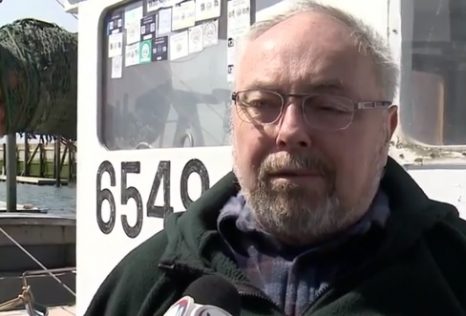
Fishermen hope for long-term solution to At-Sea Monitoring costs
The federal budget bill approved last month includes millions of dollars to pay for workers who are required to join fishing trips off New England’s shores. But it’s a temporary fix. And for the few groundfishermen left, the cost could be too much to take on themselves. David Goethel has been groundfishing off Hampton’s coast for 51 years and says a lot has changed. “We’ve lost in New Hampshire about 95 percent of our active fishermen in the last 17 years,”,, >click to read<11:24
WEATHER UPDATE: NEFMC Program Review, Tuesday, March 13 modifications, to accommodate remote public comments
Due to the incoming winter storm, the New England Fishery Management Council will provide an opportunity for members of the public to speak remotely via webinar during scheduled public comment periods on Tuesday, March 13 during the first day of the Council Program Review. Here’s what you need to know.,, Panel members will be arriving in advance of the storm, and the review meeting will proceed on schedule.,,, Therefore, the New England Council is expanding the webinar option to accommodate remote public comments during the storm. At present, this option will be available only on Tuesday, March 13. Register for the webinar >click to register/listen/comment<>click to read the updated info< 12:35
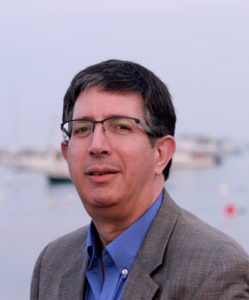
Hitting the Trail: NOAA’s GARFO leader looks to cultivate culture of collaboration
As debuts go, Mike Pentony’s first day on the job as the regional director for NOAA’s Greater Atlantic Regional Fisheries Office was a corker. The federal government marked his ascension on Jan. 22 as only the federal government can — shutting down all but the most essential government services as a consequence of the usual congressional mumbley-peg. “My first action was to come in and proceed with the orderly shutdown of government operations,” Pentony said recently during an interview in the corner office on the uppermost floor of GARFO headquarters in Gloucester’s Blackburn Industrial Park. The respite was short-lived. The shutdown lasted a day. >click to read< 23:52

































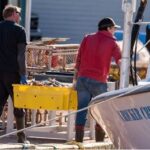

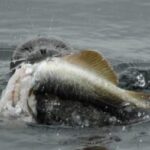
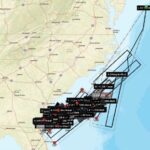

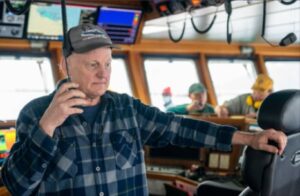
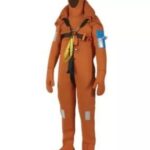
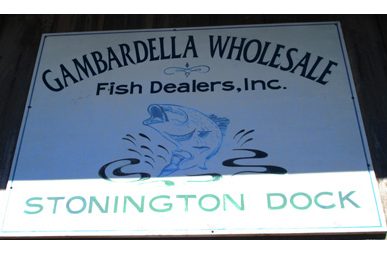
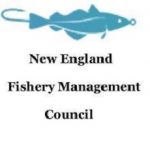



Scallops: NEFMC to Hold 10 Scoping Meetings on Northern Gulf of Maine, Limited Access General Category Amendment
The New England Fishery Management Council has scheduled 10 scoping meetings from Maine to Virginia to gather public input on the development of Amendment 21 to the Atlantic Sea Scallop Fishery Management Plan. This amendment is being developed to address three primary issues: • Northern Gulf of Maine (NGOM) Management Area measures; • Limited Access General Category (LAGC) individual fishing quota (IFQ) possession limits; and • The ability for Limited Access vessels with LAGC IFQ to transfer their quota to vessels that onlyhold LAGC IFQ permits. >Click here for time schedules, locations, and other information<16:03
Share this post